 Next: Govt paid N20m ransom to free Delta hostages
Next: Govt paid N20m ransom to free Delta hostages
"The Nigerian government, through its secret police, fuelled kidnapping in the restive Niger Delta region by paying millions of naira in ransom to kidnappers, a leaked US diplomatic cable, made available to NEXT, has revealed.
The cable, dated February 6, 2007, and which punctured the claims by the government, and the Nigerian security agencies, that ransoms were never paid to kidnappers, detailed how the government funnelled N20 million through an official of the State Security Service (SSS) to militants to free two foreign hostages."
Next: CHEVRON NIGERIA SEEKS LONG-TERM SOLUTION TO DELTA UNREST
"Chevron Nigeria security consultant Hamish MacDonald shared concerns that a large amount of money was paid for the release of the Delta hostages and an industry of hostage-taking may be in the offing. Chevron has managed thus far to stay out of harm's way, but MacDonald feels the urgent need to expand internationally-supported, long-term development programs. He plans to discuss the matter privately with Delta State Governor Ibori. Chevron will be welcoming a new Managing Director, and, with his arrival, MacDonald expects Chevron to transition from an expansion mode to one of consolidation."
El País: "Ábrelo y di ahhhh: Sistema venezolano de salud" ("Open it up and say ahhhh: Venezuelan health system")
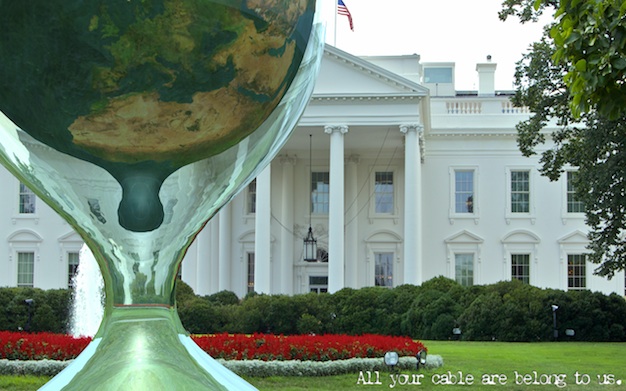 Next: Yar’Adua made me acting President, says Yayale
Next: Yar’Adua made me acting President, says Yayale
"As his health failed late president Umaru Yar’Adua illegally bypassed his vice president, Goodluck Jonathan, and handed presidential authority to Yayale Ahmed, the Secretary to the Government of the Federation.
This unconstitutional act has now come to light through US diplomatic cables leaked to Wikileaks and made available exclusively to NEXT."
Next: Buhari says speaker’s comments confirm his fears
"Two parties who went to court over the 2007 presidential elections, Atiku Abubakar and Muhammadu Buhari, yesterday reacted to comments credited to Speaker Dimeji Bankole that the late president, Musa Yar’Adua, bribed Supreme Court justices to swing the judgment in his favour. While Mr. Abubakar, the candidate of the opposition Action Congress in the election, maintained that the speaker of the House of Representatives’s comment had disgraced Nigeria, Mr. Buhari, the presidential candidate of the Congress for Progressive Change, said the revelation had vindicated his stand that the nation’s judiciary could not be trusted, and therefore needed a thorough overhaul."
Der Spiegel: EADS-Manager verspotteten Kollegen vor US-Diplomaten (EADS managers colleagues mocked U.S. diplomats)
Last Thursday, 17th March, Wikileaks announced the first partnership with a newspaper in Turkey on releasing around 11,000 U.S. State Department cables regarding Turkey from between 2000 and 2010 to Taraf, a liberal Turkish newspaper . Publishing since late 2007, Taraf has distinguished itself by opposing interference by the Turkish Military in civilian affairs. After Taraf revelations made on June 21 (2008) regarding the Egenoton (an alleged clandestine, ultra-nationalist organization in Turkey with ties to members of the country's military and security forces), when Adnan Demir, who was on the editorial staff of Taraf, was charged with leaking secret military information, the military responded by canceling the newspaper's accreditation for press releases at its headquarters for a short time. Taraf itself is also a whistle-blower journal, since Turkish military leaks were published on its pages more than once. Taraf holds a very good reputation worldwide, the journal was quoted by Der Spiegel, Times Online and such others as "Courageous," "independent," "plucky," and "scrappy".
Because of heavy political persecution on Taraf, deriving from its famously bad relationship with the Turkish Military, most enterprises have a fear of advertising in the journal and its pages present very little propaganda. Various suspicions about who supports Taraf were always present in Turkish people’s mind. Rumors that the CIA or the major party AKP are financially responsible for Taraf still exist among the public. The jewish millionaire who described himself as Taraf’s supporter gave an interview to NYT in 2009.
If you got here from an old link, please visit our new campaigns and petitions page, or the master list.
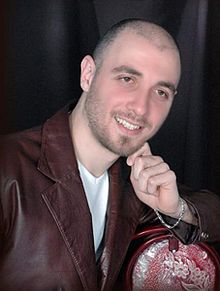 NOMINATE MOHAMMED NABBOUS FOR 2011 CNN HERO
NOMINATE MOHAMMED NABBOUS FOR 2011 CNN HERO
Mo Nabbous is thought by many to be the most inspiring journalist we have seen in a very long time. We feel that he ought to be a CNN 2011 hero. Please go here to nominate him.
Everyday People Changing the World
From Wikipedia: NPR social media strategist Andy Carvin called Nabbous "the face of Libyan citizen journalism;" Nabbous was the primary contact of many international media outlets looking for information regarding the situation in Libya.[citation needed] Nabbous was also the founder of the independent internet tv station in Libya: Libya Alhurra TV, broadcasting on Livestream.com.
Nabbous' online news station, Libya Alhurra TV, was the only broadcast coming out of Benghazi when Muammar Gaddafi shut down internet lines when the February 2011 uprising began.[4] Using an illegal satellite connection, Nabbous was able to bypass government blocks on internet in order to broadcast live images from Benghazi across the world. As the independent voice for a Libyan population during the 2011 Libyan uprising, Der Spiegel reporter Clemens Höges called Nabbous "the man who just might be the most important person in the revolution."
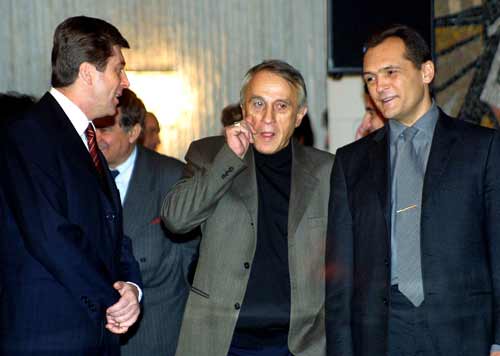
In June 2003, the Bulgarian weekly Kapital published an article about the privatization of "Atomenergoremont" - the Bulgarian State-owned company, (the only one), maintaining the Kozloduy Nuclear Power Plant. Under the suggestive title "Criminal Radiation," it exposed the main competing candidates: Vasil Bozhkov Aka "The Scull" and Konstantin Dimitrov AKA "Samokovetza,” both known as controversial figures, suspected of criminal activities.
Just a few months later, Konstantin Dimitrov Samokovetza was shot dead in Amsterdam by a contract killer. As for Atomenergoremont, it was sold to the "Bulgarian Energy Company" owned by Hristo Kovachki, the next controversial businessman, who is currently on bail over accusations of tax evasion.
However, the Wikileaks unedited cable recently revealed that James Pardew, the American ambassador to Sofia at the time, wrote in 2005 that Vasil Bozhkov "is believed to control “Risk Engineering,” another key firm in the Bulgarian nuclear business. On the other hand, Ambassador Pardew also reported that Bozhkov is considered to be the ringleader of an organized crime group. "Bozhkov's illegal activities include money laundering, privatization fraud, intimidation, extortion and racketeering," the cable notes.
On 10th March 2011 Australian Prime Minister Julia Gillard made a speech to the US Congress. It was notable for one reason, the US media appeared barely to report it—Google searches show Australian entries page after page—and perhaps that’s because the US media market for show ponies, seals and canines performing obsequiously for an audience is already saturated.
Crafted for a US audience it was as Hugh White (Australian National University professor and a former senior Defence Department official) said: a piece of policy-free puff…I suppose she wanted the Americans to like her, but she decided not to say anything serious to them.
Our leaders never say much that is seriously an assertive, independent point of view to the USA. This is of course as befits a thoroughly one sided relationship characterised by ultra obsequiousness by an almost endless line of Australian prime ministers from Robert Menzies who begged the US to join in the Vietnam war; Harold Holt’s—all the way with LBJ and more lately John Howard who jumped on the Bush orchestrated litany of lies bandwagon, otherwise known as the second Iraq war (and absurdly incorporating a war on an abstract noun--terrorism) as if we somehow owed an eternal debt--which can never be repaid--as a satrapy of the USA and our prime ministers are the satraps. Or as liberal party Senator Brandis, leaker of the ‘Ratty’ label might have said in the case of John Howard, a ratsap.
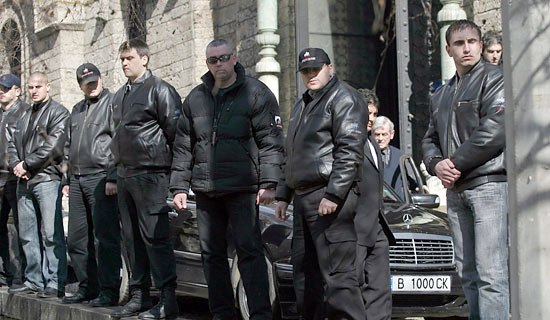
В края на декември 2010 г. сайтът Wikileaks даде начало на скандала Cablegate: публикацията на 251 287 секретни американски дипломатически телеграми. До този момент в сайта са публикувани 5000 телеграми или около 2% от цялата база. Осем от публикуваните до момента телеграми са от американското посолство в София.
Общо в базата данни на Wikileaks има 978 дипломатически телеграми от посолството на САЩ в София. В още 66 грами от други посолства се среща етикетът Bulgaria.
На 1 декември 2010 г. Гардиън публикува в сайта си дипломатическа телеграма на американското посолство в София за организираната престъпност в България.
На 7 декември 2010 Монд публикува обзорен материал за влиянието на руската мафия в Европа, в който също се цитира грамата, подписана от посланик Джеймс Пардю.
От статията в Монд научаваме също, че има и друга телеграма датирана от 11 септември 2009 г., която също е посветена на българската организирана престъпност. В нея има раздел "Руска връзка", където се коментира представителят на Майкъл Чорни в България – адвокатът Тодор Батков. Посолството подчертава неговите солидни политически връзки и факта, че през 2008 г. е награден от президента Георги Първанов с най-високото държавно отличие орден „Стара планина”.
Десет дни след публикацията в Монд, на 17 декември 2010 в сайта на Wikileaks беше публикуван цензурираният от Гардиън текст на дипломатическата телеграма от 7 юли 2005, подписана от посланик Джеймс Пардю.
Текстът на телеграмата от септември 2009 така и не видя бял свят и до този момент единствено журналистите от изданията акредитирани от Wikileaks са запознати с него.

Bulgarian translation here.
As described in an article on WL Central yesterday, 2011-03-17 Unredacted cable from Sofia shows the total invasion of the state by organized crime, a cable which had 3/4 of its text redacted by the Guardian has now been published in full. This WL Central writer is also a member of the web site Bivol which published the unredacted cable.
Why did The Guardian and Le Monde Conceal Information about Crime in Bulgaria?
The stated policy of Wikileaks is to not publish the original texts of the cables, but rather censored versions, edited by the teams of their partner media, after the latter have examined the content of the documents. This way media, known for their professionalism and good reputation, offer a guarantee the names of informers and third parties and their identities would not be revealed.
Wikileaks have chosen this model in order to not endanger the lives of intelligence agents and informers as it happened after the publication of documents about the US and its allies’ military operation in Afghanistan. At the time, even staunch supporters of freedom of speech, such as “Reporters without Borders,” voiced strong and grounded criticism of Julian Assange.
One cannot help it, but note that in the published cable from July 7, 2005, the section “Who Is Who in Bulgarian Organized Crime” abounds with censored paragraphs. We can only guess the reason of the Guardian journalists to conceal individuals and businesses the Embassy believes are part of organized crime. The names of these individuals and businesses, along with information about alleged ties with organized crime, are nothing new for the Bulgarian and international audience.
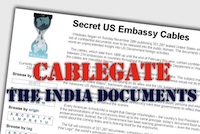 India cables released to The Hindu have created a storm in the past days. Now, The Hindu reports that the US State Department warned the India government of the “existence of such communications on December 23, 2010. Secretary of State Hillary Clinton called External Affairs Minister S.M. Krishna and spoke to Krishna about WikiLeaks. She warned the government of “potentially embarrassing disclosures.”
India cables released to The Hindu have created a storm in the past days. Now, The Hindu reports that the US State Department warned the India government of the “existence of such communications on December 23, 2010. Secretary of State Hillary Clinton called External Affairs Minister S.M. Krishna and spoke to Krishna about WikiLeaks. She warned the government of “potentially embarrassing disclosures.”
On December 21, 2010, then-State Department spokesman P.J. Crowley said, “Those mutual interests are unchanged by any document that has been released by WikiLeaks. We are going to do this one day at a time, one action at a time. The Secretary continues to have regular contacts either in person or in phone calls with world leaders. This issue comes up, and without exception, the leaders reassure her that notwithstanding whatever ripples have been created by these revelations, our relations with these countries will continue because they're important.”
The key cable creating a massive political crisis in India was sent out from Consulate Chennai on May 13, 2009. A US diplomat writes:
The subject of politicians bribing voters, with either cash or gifts, was a recurring theme in the course of covering the 2009 election campaigns in South India. Wherever we went, journalists, politicians, and voters spoke of the bribes as a commonly accepted fact of the election process. Political insiders, and in some instances candidates themselves, admitted to us that candidates regularly violate India's election rules in the course of campaigning for office. This cable examines methods by which political parties bribe voters and how those bribes affect elections in India.
Analysis of unedited cable: 2011-03-18 Bulgarian Organized Crime Uncensored
2011-03-19 Bulgarian "Criminal Radiation" Leaks from Unedited Wikileaks Cable
Bulgarian translation of both articles here.
UPDATE: The Wikileaks site has now been updated with the uncensored version of the 05SOFIA1207 cable. The full text scores 5226 words compared to the 1406 words in the Guardian redacted version published on December 1 2010. The redactions are shown clearly here (thanks to commenter rhill for pointing it out). The parts that were redacted are green.
At the end of November, 2010, Wikileaks triggered the Cablegate scandal: the release of 251 287 secret American diplomatic cables. Currently, the site has published 5 000 cables or about 2% of the entire database. Eight of them are from the American Embassy in Sofia.
The Wikileaks site has a total of 978 diplomatic cables from the US Embassy in Sofia. There are another 66 cables with the tag Bulgaria.
On December 1, 2010, The Guardian published on its site the diplomatic cable of the American Embassy in Sofia dedicated to organized crime in Bulgaria.
On December 7, 2010, Le Monde published an overview about the influence of Russian mafia in Europe, also citing the cable, signed by then Ambassador to Sofia, James Pardew.
Wednesday's forum on the tribulations surrounding WikiLeaks was timely and a much-needed shot in the arm for political discourse in Australia.
Framed through the lens of Julian Assange and WikiLeaks' David and Goliath struggle against the machine, the dominant theme of the night was the questioning of Australia's political identity and sovereignty in its unbalanced relationship with the United States, and how this imbalance has manifested itself in the lack of political and legal support provided to its citizens. Hence, some parallels between Julian Assange and previous Gitmo detainees David Hicks (present in the audience) and Mamdouh Habib were repeatedly made. On some levels, this may be seen as incongruous - Hicks and Habib were terror suspects, whereas Assange, despite hostile rhetoric, has not been accused of terrorism by a prosecuting authority - but the import of drawing these parallels is the same.
Open to the public, the seats inside Sydney's stately Town Hall filled up quickly, no doubt due to the caliber of the panelists rather than the rain pouring outside. The night's proceedings were emceed by Mark Kostakidis, veteran of Australian public broadcaster SBS. The speakers were the award-winning journalist John Pilger, member for Australian Federal Parliament and famous Iraq war whistleblower Andrew Wilkie, and tireless human-rights campaigner Julian Burnside QC.
Indeed, there were no "hawks" on the panel to provide opposition to the overall theme of libertarianism - not that the audience present minded, for this forum was a chance to escape the endless diatribes of said hawks, who are already in the privileged position of being able to pollute the airwaves, print and the web, stifling such fora under hackneyed pretexts of "national security" (to name but one).
Argentina.- Desde hace días comenzaron a tener repercusiones los cables de Wikileaks en Argentina.
El comienzo de la campaña presidencial, es un buen pretexto por parte de los medios de reflotar los mismos.
Para la prensa opositora al gobierno, estos cables le sirven para ridiculizar a los políticos que desfilan asiduamente por la Embajada de los Estados Unidos. Muchos como el jefe de Gobierno de la Ciudad de Buenos Aires, Mauricio Macri, posible candidato de la derecha a la presidencia, golpeó la puerta en su momento de la embajada para que EEUU intervenga en cuestiones de política interna, entre otros.
Ahora es el turno del ministro de Economía, Amadeo Boudou (La Nacion: Proamericano y que no se sepa) en cuya reunión con la embajadora de EEUU en la Argentina Vilma Martínez se habló de posibles negociaciones de la deuda con los holdouts, Fondo Monetario Internacional y el Club de París. Además de que el presidente Barack Obama ponga en agenda una visita al país.
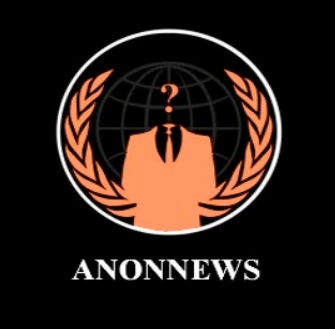 An “open letter” from the ex-Bank of America employee was recently posted on the website Anonymous has been using to share the leaked emails. It appears to be in response to how he was characterized in coverage of the leak.
An “open letter” from the ex-Bank of America employee was recently posted on the website Anonymous has been using to share the leaked emails. It appears to be in response to how he was characterized in coverage of the leak.
TechHerald.com has focused on this comment, which he wrote in response to a question from Anonymous on whether he had more emails: “I have to save the rest. I promised a WSJ [Wall Street Journal] reporter in Australia the story back in Jan when the Balboa sale was announced. I also need to keep a few aces for my inevitable years of litigation for what I’m doing.”
Today, Anonymous published a letter from him. It suggests he may not be so focused on profiting off his information after all.
He thumps his chest at Bank of America saying Bank of America continues “to underestimate me.”
“I’ve already read their plan of action against me. Anonymous leaked it for the world to see months ago,” he adds. “While “Anonymous” BofA executives huddle together and cower behind their corporate logo, hoping their corporate name can withstand a greater shitstorm than mine, we’ve both been reading the exact same battle plan. Don’t be fooled by press releases. The HB Gary plan cost a lot of the money from their piggy bank, and they’re not ones to let their own money go to waste.”
He suggests he is not afraid of Bank of America executives or employees who might be plotting against him:
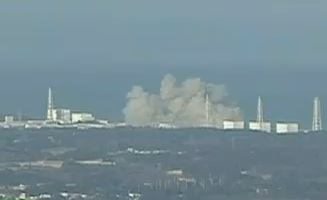 Russian nuclear accident specialist Iouli Andreyev, who helped with cleanup in the aftermath of Chernobyl, said on March 16, “The Japanese were very greedy, and they used every square inch of the space. But when you have a dense placing of spent fuel in the basin, you have a high possibility of fire if the water is removed from the basin.” His comments came as Japan faces a growing nuclear disaster with nuclear reactors leaking and radiation plumes discharging into the atmosphere.
Russian nuclear accident specialist Iouli Andreyev, who helped with cleanup in the aftermath of Chernobyl, said on March 16, “The Japanese were very greedy, and they used every square inch of the space. But when you have a dense placing of spent fuel in the basin, you have a high possibility of fire if the water is removed from the basin.” His comments came as Japan faces a growing nuclear disaster with nuclear reactors leaking and radiation plumes discharging into the atmosphere.
Andreyev put the blame on corporations and United Nations' International Atomic Energy Agency, saying they had “willfully ignor[ed] lessons from the world's worst nuclear accident 25 years ago to protect the industry's expansion.” He condemned the nuclear industry for ensuring Chernobyl was not studied properly.
Japan has been scrambling to contain a nuclear catastrophe ever since an 8.9 earthquake struck last week. As of Wednesday, March 16, a helicopter was unable to drop water on “the most troubled reactor” in the country. Workers left the power plant briefly as radiation levels increased.
In 2007, twelve power companies “admitted to thousands of irregularities in reporting past problems.” Japanese citizens began to resist the building of new nuclear reactors. They pushed for legal actions to suspend operations. Now, US State Cables released by WikiLeaks, which are being published by the Telegraph and The Guardian, further affirm that some sort of coverup has been going on.
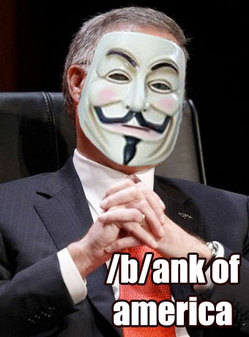 Several writers have published their thoughts on the bank employee emails posted by Anonymous. They appear to have been caught up in the news cycle, hoping to get ahead of this story and get the most traffic to their post. In rushing the story, at least a few have committed a basic failure of journalism, one that could easily be remedied by fact checking.
Several writers have published their thoughts on the bank employee emails posted by Anonymous. They appear to have been caught up in the news cycle, hoping to get ahead of this story and get the most traffic to their post. In rushing the story, at least a few have committed a basic failure of journalism, one that could easily be remedied by fact checking.
Juli Weiner at VanityFair.com writes, “A-ha! Bank of America is indeed the large United States bank whose internal documents and e-mails were rumored to soon appear on the Internet. But twist! The leaker of those documents was not WikiLeaks’ Julian Assange, spectral nuisance and folk hero, but Anonymous, the rabble-rousing hacking collective.”
Angela Orr on Technorati writes, “Alluded to by the Anonymous community for months, leaks of Bank of America documents have finally begun to come to light, as the so-called #BlackMonday Operation began, today.”
And, at ComputerWorld, Darlene Storm writes, “It's unclear whether part one of the bankofamericasucks leak is the same information that BofA was afraid WikiLeaks would publish.”
Actually, it is incredibly clear. Look at the dates: they are all from days ago, the first one being sent out on March 10, 2011. This makes it impossible for Anonymous to be leaking whatever material WikiLeaks happens to hold.
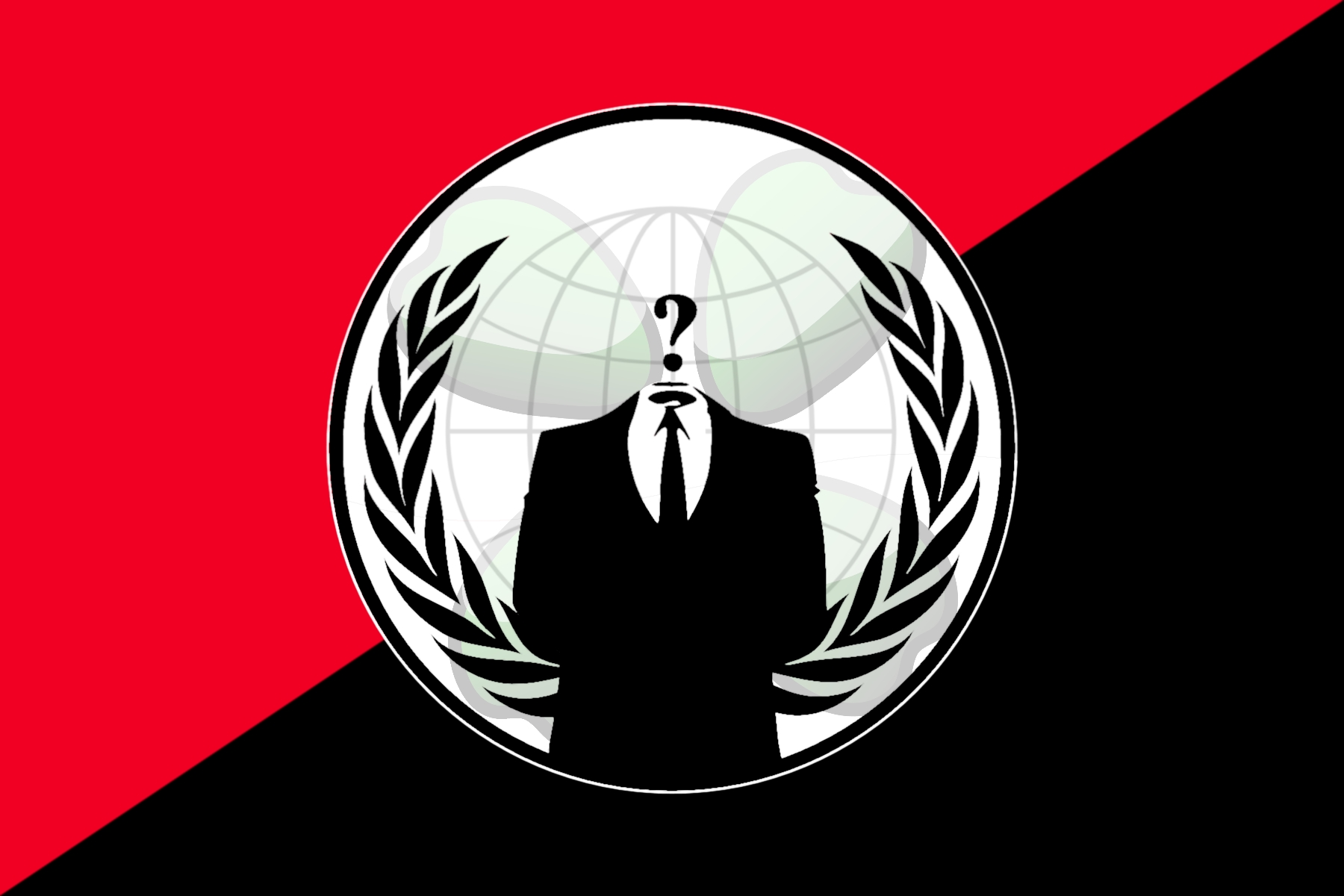 Anonymous, the hacktivist group known for supporting WikiLeaks and mounting actions in cyberspace in defense of freedom of information and transparency, launched “#BlackMonday” at midnight. Emails between an Anonymous user and an employee with Balboa Insurance, whose work is connected to the operations of Bank of America, were posted.
Anonymous, the hacktivist group known for supporting WikiLeaks and mounting actions in cyberspace in defense of freedom of information and transparency, launched “#BlackMonday” at midnight. Emails between an Anonymous user and an employee with Balboa Insurance, whose work is connected to the operations of Bank of America, were posted.
The employee claims to have worked for the company for the last seven years. He writes, “Many of you do not know who Balboa Insurance Group (soon to be rebranded as QBE First by Australian Reinsurance Company QBE according to internal communication sent to all Balboa associates) is, but if you’ve ever had a loan for an automobile, farm equipment, mobile home, or residential or commercial property, we knew you. In fact, we probably charged you money…a lot of money…for insurance you didn’t even need.”
Emails from the employee allegedly affirm suspicions that banks like Bank of America have been engaged in rampant fraud. But, the bigger story here is Anonymous has made contact with an employee at Balboa Insurance and opened up a conduit for getting information out to the world. He appears intent to push others to blow the whistle of Bank of America fraud.
In an email sent on March 11, 2011 at 7:06 pm, the Balboa Insurance employee writes about a key strategic issue that Anonymous faces in its campaign to take down Bank of America for its disingenuous and fraudulent dealings (particularly a campaign that began when the bank announced it would cease to process donations to WikiLeaks).
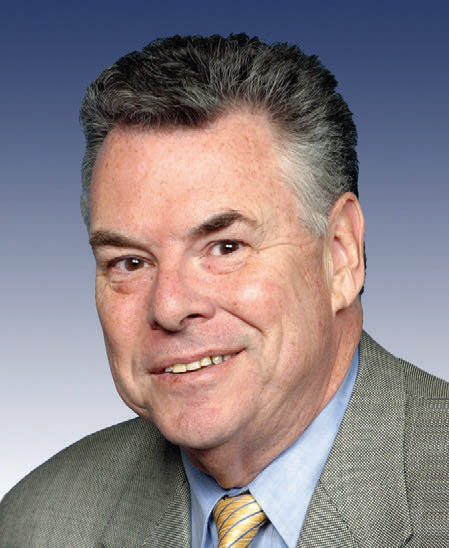 Rep. Peter King of New York, who held the first in a series of hearings on radicalization in the American Muslim community on March 10, has a well-known position on WikiLeaks: It’s terrorism. He urged the Treasury Department in January 2011 “to add WikiLeaks and its founder Jullian Assange to the Specially Designated National and Blocked Persons List (SDN List).”
Rep. Peter King of New York, who held the first in a series of hearings on radicalization in the American Muslim community on March 10, has a well-known position on WikiLeaks: It’s terrorism. He urged the Treasury Department in January 2011 “to add WikiLeaks and its founder Jullian Assange to the Specially Designated National and Blocked Persons List (SDN List).”
His letter to the Treasury Department explains his opinion, “The U.S. government simply cannot continue its ineffective piecemeal approach of responding in the aftermath of Wikileaks’ damage. The Administration must act to disrupt the Wikileaks enterprise. The U.S. government should be making every effort to strangle the viability of Assange’s organization.”
Presumably, King would like to see WikiLeaks “strangled” in the way that the Committee on Islamic-American Relations (CAIR) is being cracked down on by the FBI. King explicitly called for Muslim-Americans to reject CAIR, which he said “was named as an unindicted co-conspirator in the terrorist financing case involving the Holyland Foundation.”
In the leadup to this hearing I found it shocking and sad that the mainstream media accepted CAIR’s accusations as if it were a legitimate organization. Thankfully, FBI Director Mueller has ordered the FBI to cease all dealings and contact with CAIR. I would hope that all law enforcement officials would follow the lead of the FBI Director.
[UPDATE - 2010-03-09]
The Middle East Institute has posted video of a US-Libya business relations event that WL Central mentioned previously. The event called "US-Libya Relations: Surviving the WikiLeaks Controversy?" featured two individuals, David Mack and Charles Dittrich, with connections to the US-Libya Business Association.
The person introducing the event in the video (presumably a person with the Middle East Institute which hosted the panel) explains the WikiLeaks cables released on Libya rocked the relationship between the US and Libya. "The US' very able ambassador to Libya, Gene Cretz, was quoted in secret cables as talking about Muammar Gaddafi's reliance on a voluptuous blond Ukrainian nurse. That did not go down well in Tripoli."
Ambassador Cretz was recalled. But, as Mack says when he gets up to speak, a meeting in mid-December was held between business leaders from the US and Tripoli and there was a willingness to push onward and forget what had been revealed.
Previous post which appeared on 2010-02-22 appears below.

The only people more terrified of the foreign mercenaries or anti-aircraft missiles or the fighter jets deployed to shell protesters than Libyans are the businessmen working for oil and gas companies in Libya. In fact, this whole democracy thing is a nightmare for companies in Libya that fought just over two years ago to ensure the market in Libya would not be restricted by an amendment that aimed to prevent companies from doing business with rogue states designated as state sponsors of terrorism.
Financial Times reports escalating violence in Libya has kept oil prices at two and a half year highs. Many of the oil ports and refineries are now shut down. International oil companies are evacuating their staff from the "world's 12th largest oil exporter."
All the violence, protest and political tension in Libya and the wider Middle East and North Africa seems to have led the US-Libya Business Association to make a cold calculated decision to disappear from the Internet for the time being until calm returns to Libya. RAW STORY reported on February 21 that the website of the US-Libya Business Association (USLBA) went down.

Stories of what happened as Egyptian women protested in Tahrir Square and called for equality and fairness in Egyptian society in honor of International Women’s Day are circulating. Female Egyptians hoped to have a million women march. Unfortunately, only a few hundred women came out to demonstrate and the action turned violent as men disrupted what should have been a peaceful day of celebration.
Christian Science Monitor reports men showed up and shouted, “Go wash clothes!” And said, “You are not married; go find a husband,” and “This is against Islam!” Men suggested women already have enough rights. They argued now was not the time to argue for rights.
Men decided women had been demonstrating for too long and violently scattered the women provoking the military to fire shots in the air. Sexual harassment, which many female Egyptians said during the uprising had disappeared, happened during the “melee.”
Cairo-based reporter and writer Ursula Lindsey reports one “48 year-old accountant” was "horrified by the protesters’ demand that women be allowed to run for the presidency.” He suggested Egyptians would “reject this completely” and added, “Women have a role, and men have a role. We’re used to men ruling. Who rules in my house? My father. And who rules in my family? I do.”
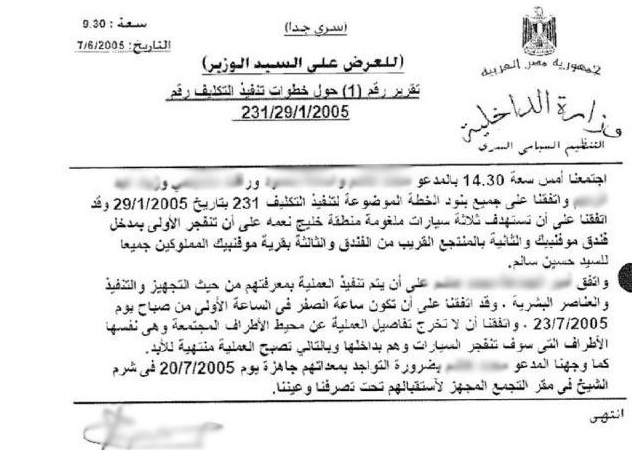 Egyptians stormed Amn Dawla, a State Security building in Nasr City, over the weekend. Protesters were aware that security was burning, shredding and destroying documents that might incriminate State Security officials in any future investigations or pursuits of accountability in the aftermath of the toppling of President Hosni Mubarak. They entered the building, started taking photos and video and took some of the documents to scan and post online or hand over to the armed forces so State Security could not be free from justice.
Egyptians stormed Amn Dawla, a State Security building in Nasr City, over the weekend. Protesters were aware that security was burning, shredding and destroying documents that might incriminate State Security officials in any future investigations or pursuits of accountability in the aftermath of the toppling of President Hosni Mubarak. They entered the building, started taking photos and video and took some of the documents to scan and post online or hand over to the armed forces so State Security could not be free from justice.
Inspired by WikiLeaks, Amn Dawla Leaks was instantly born. Twitter and Facebook accounts began to circulate the documents. The information, in Arabic, received many requests for English translation. It became clear there was much world interest and many would want to know what was uncovered.
One main revelation that has come out in the first days involves a bombing that up to this point was believed to have been perpetrated by Bedouins or Islamists. In the resort city of Sharm el-Sheikh on the southern tip of the Sinai Peninsula, about eighty-eight people were killed.
The document describes three car bombs that are to be detonated at the first entrance of the Movenpick Hotel. The second is to be detonated near the hotel and the third is to be detonated at a hotel in the village of Movenpick. All sites of detonation are intended to damage property owned by Hussein Salem. The bombings are planned for Revolution Day, a day that commemorates Gamal Abdel Nasser’s overthrow of King Farouk in 1952.
Theme by Danetsoft and Danang Probo Sayekti inspired by Maksimer